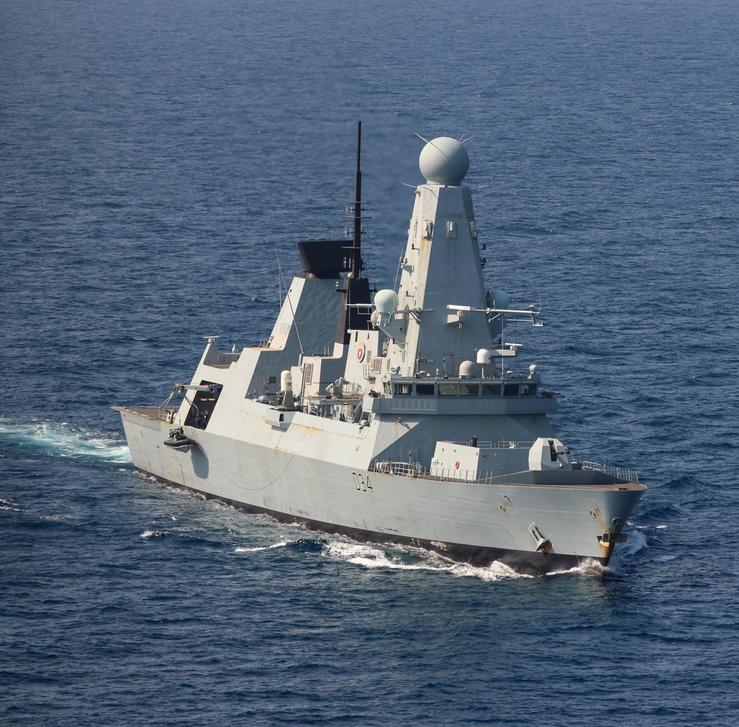The Scoop
Simmering differences between the Biden administration and key Arab states over Yemen — ironically, tied to successful ceasefire talks over the past three years — are complicating U.S. efforts to neutralize Houthi rebel attacks on international shipping in the Red Sea.
On Thursday, a U.S.-led coalition struck Houthi targets inside Yemen that the White House said were involved in a string of attacks on commercial shipping. “These strikes are in direct response to unprecedented Houthi attacks against international maritime vessels in the Red Sea—including the use of anti-ship ballistic missiles for the first time in history,” the administration said in a statement.
But U.S. Secretary of State Antony Blinken failed during a Mideast swing this week to sign regional heavyweights like Saudi Arabia, the United Arab Emirates, Qatar, and Egypt onto the coalition of a dozen nations — called Operation Prosperity Guardian — that began policing the Red Sea last month. U.S. officials said its chief mission is to guard against Houthi attacks emanating from Yemen that are imperiling 20% of the world’s shipping that transits through the Suez Canal. On Tuesday, the Houthi militia launched its largest ever drone and missile strike on Red Sea shipping, which the U.S. and British navies shot down.
The U.S. and allied attack Thursday could be undermined by a lack of regional support for the operation, both operationally and rhetorically. To date, the only regional state to join Operation Prosperity Guardian is Bahrain, which hosts the U.S. Navy’s Fifth Fleet in the Persian Gulf.
U.S. and Mideast officials said Saudi Arabia and the UAE would be particularly important partners for any operation against the Houthis, given their extensive knowledge of the militia and Yemen. Both nations fought a brutal war against the Houthis over the past decade to try and dislodge its army from controlling the Yemeni capital, Sanaa. But the Biden administration opposed the war upon taking office in 2021 and initially banned the sale of offensive weapons to Saudi Arabia for use in Yemen. The White House also stopped designating the Houthis as a terrorist organization, despite strong opposition from Riyadh and Abu Dhabi. And it helped broker a formal ceasefire between the Saudis and the Houthis.
Arab officials said neither Saudi Arabia nor the UAE is interested in supporting renewed military operations against the Houthis in any major way. Other key Arab states, such as Qatar and Egypt, are also reluctant to join any operation, in part because they could be seen as siding with the West in Israel’s war against the militant Palestinian group Hamas. The Houthis have publicly described their attacks as aimed at undermining Israel’s ability to conduct international trade and restock its military.
“We never see a military action as a resolution,” Qatari Foreign Minister Mohammed bin Abdulrahman Al Thani said Sunday in Doha during a press conference with Blinken. “So, we hope that we see a stop to what’s happening to the civilian ships as soon as possible through our diplomatic means. That would be the best way possible.”
In this article:
Jay’s view
The Biden administration made stopping the war in Yemen, which left hundreds of thousands dead and spurred a famine, one of its top foreign policy objectives after taking office. But its success, including the lasting ceasefire between the Saudis and Houthis, is now complicating its efforts to safeguard global shipping lanes.
The White House has prioritized preventing a broader Middle East war since Hamas launched its terrorist attack against Israel on Oct. 7. This policy has included supporting Israel Defense Force operations in the Gaza Strip, but also seeking to staunch the spread of fighting into other theaters. Iranian proxies and military allies, in an effort to support Hamas, have launched hundreds of missile and drone attacks against Israeli and American targets over the past three months, including in Syria, Iraq, and the Persian Gulf. But the Pentagon has only retaliated a few times, citing the Biden administration’s desire to contain the Gaza conflict.
But Yemen has emerged as a unique threat given that Houthi attacks are now undermining global trade. Secretary Blinken, during stops in Saudi Arabia, the UAE, Jordan, Qatar, Israel, Greece, and Türkiye over the past week, stressed that the Houthis are not just an American problem but also threaten the global economy. “When ships have to reroute to avoid danger, when insurance rates go up, when the cost of shipping goes up, that means that people are going to be paying more,” he said in Crete.
A number of former U.S. defense officials are publicly criticizing the White House for not already striking Houthi positions in Yemen. They’ve stressed that Washington’s failure to deter Iran and its closest allies so far could lead to even more devastating attacks in the future and significant loss of American life. “Typically, appeasement is not an effective long-term solution,” the former commander of U.S. forces in the Middle East, retired General Kenneth McKenzie, said Wednesday.
U.S. and Mideast officials told Semafor this week that they believe American and allied strikes against the Houthis are still almost inevitable, given what’s at stake. But the Biden administration’s inability so far to build an Arab coalition to support this cause will serve as a significant challenge.
The View From Sanaa
Houthi leaders remain defiant in response to U.S. and allied warnings about the attacks in the Red Sea. Last week, the U.S. and 12 partners issued a joint statement calling for an end of the attacks from Yemen.
On Wednesday, Houthi leader Abdul-Malik al Houthi said his forces would retaliate against the U.S. if there are strikes. “Any American attack will not remain without a response. The response will be greater than the attack that was carried out with 20 drones and a number of missiles,” al Houthi told Yemen television, referring to the militia’s latest operation. “We are more determined to target ships linked to Israel, and we will not back down from that,” al Houthi said.
The Houthis have displayed increasingly sophisticated drone and missile capabilities in recent months, much of the technology believed to have been provided by Iran. In September, the Yemeni force staged a massive military parade in Sanaa, which showcased kamikaze drones, medium-range ballistic missiles, and cruise missiles. U.S. officials say Tehran is providing logistical and intelligence support to the Houthis to aid its attacks in the Red Sea.
Notable
- Michael Knights of the Washington Institute for Near East Policy argues that Iran has modeled its support for the Houthis on its development of the Hezbollah militia and political movement in Lebanon. But he says the Houthis could potentially surpass Hezbolllah’s capabilities.


